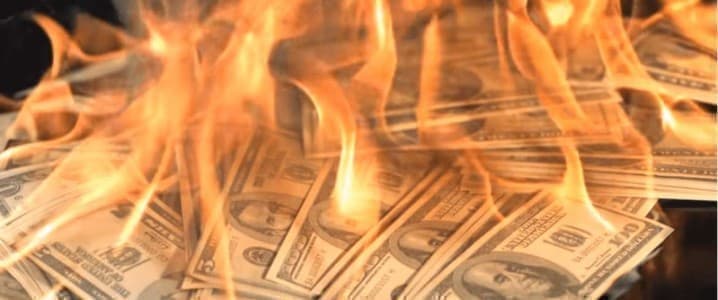Among the world’s biggest oil producers, state-run giants in China and Russia don’t need a bailout in the traditional sense. Oil industry giants in the United States aren’t likely to get one because, as Trump has made relatively clear of late, it’s a free-market question. In Canada, a bailout was dangled before the oil sands industry and then tauntingly shoved under the rug for further discussion.
The new rules of the game favor clean energy because not even a bailout--and certainly not a new OPEC deal--can save the industry from the new normal.
The U.S. shale patch, despite soaring production, was already traversing the beginning of the end before the coronavirus decimated demand, and an oil price war flooded the markets to the point of no return.
Around the world, talk of oil industry bailouts is falling on deaf ears at a time when the people themselves need a bailout.
Liberal forces the world over are also trying to use this as a lobbying festival for clean energy, greedily eyeing the demise of the fossil fuels sector, and trying to find backdoors to clean-energy bailouts instead.
They, too, are misguided.
The market will decide what is to come next, with or without bailouts.
What the industry worldwide is facing are these daunting predictions:
Oil demand could fall by more than 30 million bpd in April (or, by nearly one-third of daily fuel consumption), according to global commodities trader Trafigura.
Global oil consumption was expected to fall by a record-breaking 12 million bpd (12%) in Q1 2020, according to the Bank of America. And we’re just getting started.
U.S. Bailout Talks
While Trump has resisted lobbying for clean-energy gains at this time, he’s also resisted an oil industry bailout, despite media attention a couple of weeks ago that one was imminent.
Last Friday, Trump told industry giants that help would be forthcoming, but he was scant on details, and maintained that the free market would sort things out on its own for the most part.
Premium: Oil Market Data Is About To Get Very Ugly
And this where we will see a major divide between the industry giants and the small- and mid-cap companies that form the American shale patch.
The supergiants, Trump says, aren’t asking for a bailout--nor do they want Trump to intervene in the Russian-Saudi oil price war on their behalf.
It’s the smaller U.S. shale patch players--such as Pioneer Natural Resources and Continental Resources--who are in big trouble, and who are itching for a bailout plus a geopolitical intervention. They would love to see U.S. tariffs, for instance. At this point, however, that seems rather unlikely.
What seems most likely at this point is buying up oil to fill the U.S. Strategic Petroleum Reserve to help ease the glut. But that move was already halted by Democrats in Congress, though Trump said on Friday that it may be time to fit the necessary funding into a separate bill and have another go at it.
Others are in trouble, too, with two bankruptcy filings last week: Whiting Petroleum Corp and Hornbeck Offshore Services Inc.
Canadian Bailout Back-and-Forth
On March 19th, Western Canadian Select saw its price per barrel slashed in half, and it was already in trouble before COVID-19. Almost immediately came news that Alberta and the federal government would bail out the industry, with rumors that it would amount to a $10-billion lifeline.
Premium: What Will $15 Oil Mean For Producers?
But then, everything stopped, and by the first week of April, a bailout was still said to be on the books, although nothing had moved forward.
As in the United States, that bailout was hijacked by those lobbying equally as hard for money to stay out of the hands of fossil fuels and be redirected toward clean energy. There is also mounting public pressure to ensure that any industry bailout money is earmarked for workers and communities, not companies.
ADVERTISEMENT
When The Other Shoe Drops
For now, Russia’s oil giants don’t need a bailout. Nor does Saudi Aramco. They’ve been producing extra to flood the market and somewhat dull the pain by offsetting low prices with higher volume.
But it’s not entirely painless. Ask Aramco’s bondholders.
Aramco shares shed 27% from their peak in December to their low in March, according to Bloomberg. And that $12 billion in bonds that everyone picked up excitedly last year when Aramco went public lost over 8% in March.
Despite all, Aramco insists that it’s going to pay $75 billion to shareholders this year. That’s hardly bailout talk.
So, where does that leave the American shale patch? To its own devices, mostly. For the smaller players, it’s likely going to mean a lot of cheap consolidation at best, and bankruptcy at worst. For Canada’s oil sands, it’s likely to be the worst-case scenario, and a bailout isn’t going to be enough considering the pre-COVID state of affairs.
By Editorial Dept for Oilprice.com
More Top Reads From Oilprice.com:
- Oil Price Crash Opens A Window Of Opportunity For Renewables
- Crashing Oil Prices Force U.S. Oil Firms To Cut Budgets
- Natural Gas Prices Could Double Next Year

















